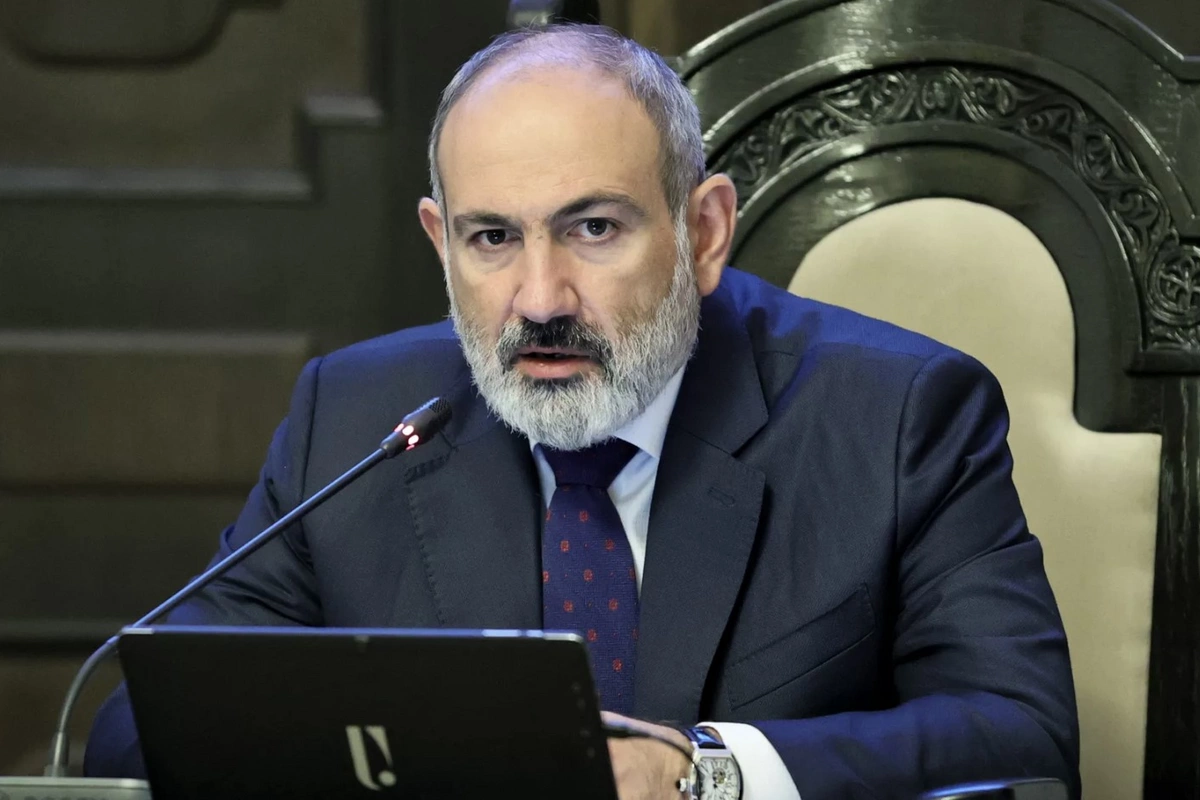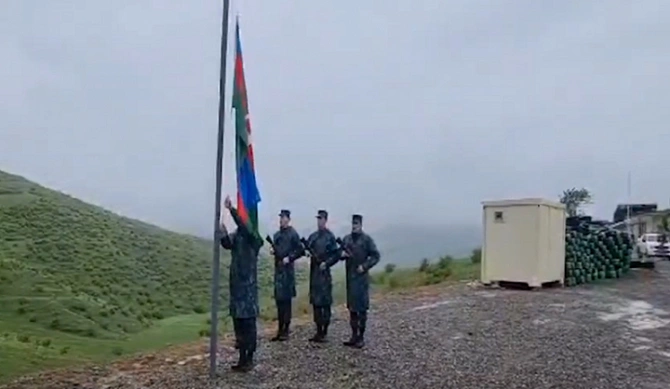
Copyright AP Photo
By Tural Heybatov
Armenian Prime Minister Nikol Pashinyan finds himself in a challenging position. His persistent efforts to convey basic truths to Armenian society often feel like banging his head against a wall. Regularly, he reiterates the same points, hoping that minds dulled by nationalist propaganda will eventually awaken.
Since the end of the 2020 war , Pashinyan has been working to reshape public perceptions in Armenia, a task he continues to this day. Yet tangible results remain elusive, as the public clings to outdated narratives, evident in the discourse on Armenian social media platforms.
"Armenia"s rejection of the borders established during the Soviet era equates to a rejection of sovereignty and statehood," Pashinyan wrote on his Facebook page, addressing his compatriots.
"I must state plainly that this approach is extremely dangerous for Armenia, as rejecting Soviet-era maps could mean rejecting our statehood and independence. Our independence was achieved within the borders of Soviet Armenia, and the international community recognized us as such. Loyalty to our internationally recognized territory is crucial for our security and serves as a protective buffer," the prime minister explained. He also noted that if Armenians fail to recognize their internationally acknowledged territory, it opens the door for others to disregard it as well.
The influence of revanchist propaganda in Armenia far outweighs Pashinyan's realism. Calls for alternative approaches to border delimitation suggest that Armenia has yet to abandon its territorial claims against Azerbaijan, hoping for future opportunities to expand its reach under favorable conditions. While it"s hard to discern Pashinyan's exact expectations, his attempts to present objective realities to Armenians deserve acknowledgment. Armenian society must come to terms with the fact that the losing side of a war has no leverage to impose terms on the victor. Persisting in this denial only worsens Armenia's position. Regardless of global developments, this fundamental principle remains unchanged. For Armenia, the game is over, and it should count itself fortunate to face a magnanimous opponent.
However, magnanimity has its limits, and the border issue must be resolved. Azerbaijan's patience is not infinite, a reality Pashinyan appears to understand, even if it remains unpopular among his people. The backlash following the delimitation and demarcation of the first section of the former contact line in May this year is telling. The opposition swiftly mobilized public unrest, creating significant challenges for the government.
In October, the Armenian parliament approved a regulation governing the activities of Armenian and Azerbaijani commissions on border delimitation , provoking further hysteria among revanchist circles. Progress was made in August when the two countries' state commissions finalized a protocol for joint activities. This marked a milestone in bilateral relations, as both sides achieved a rare agreement. Earlier efforts had resulted in the delineation of a 12.7 km section of the border. Azerbaijan regained 6.5 square kilometers of territory , including four villages in the Gazakh district-Baganis Ayrum, Ashagy Askipara, Heyrimli, and Gizilgajili-which were secured by Azerbaijan's State Border Service.

Yet unresolved issues persist. To restore the 1991 border, the Armenian government will need to take further unpopular steps, including the return of the Karki village in Azerbaijan's Nakhchivan Autonomous Republic, among others. Pashinyan is attempting to prepare society for these inevitable developments. Armenia must recognize Azerbaijan's territorial integrity within Soviet-era borders, not the imaginary ones drawn by nationalist and revanchist fantasies. By refusing to acknowledge Azerbaijan"s borders, Armenia undermines its own territorial claims. It is unrealistic to expect Azerbaijan to respect Armenian borders while Armenia disregards its neighbor"s.
"Armenia"s continued territorial claims against Azerbaijan threaten the peace agenda," said Azerbaijani Foreign Minister Jeyhun Bayramov during the Third European Conference on Azerbaijani Studies in Malta on December 6.
This is a significant message, and Pashinyan appears to be one of the few in Armenia who comprehends its gravity.
Share on social media